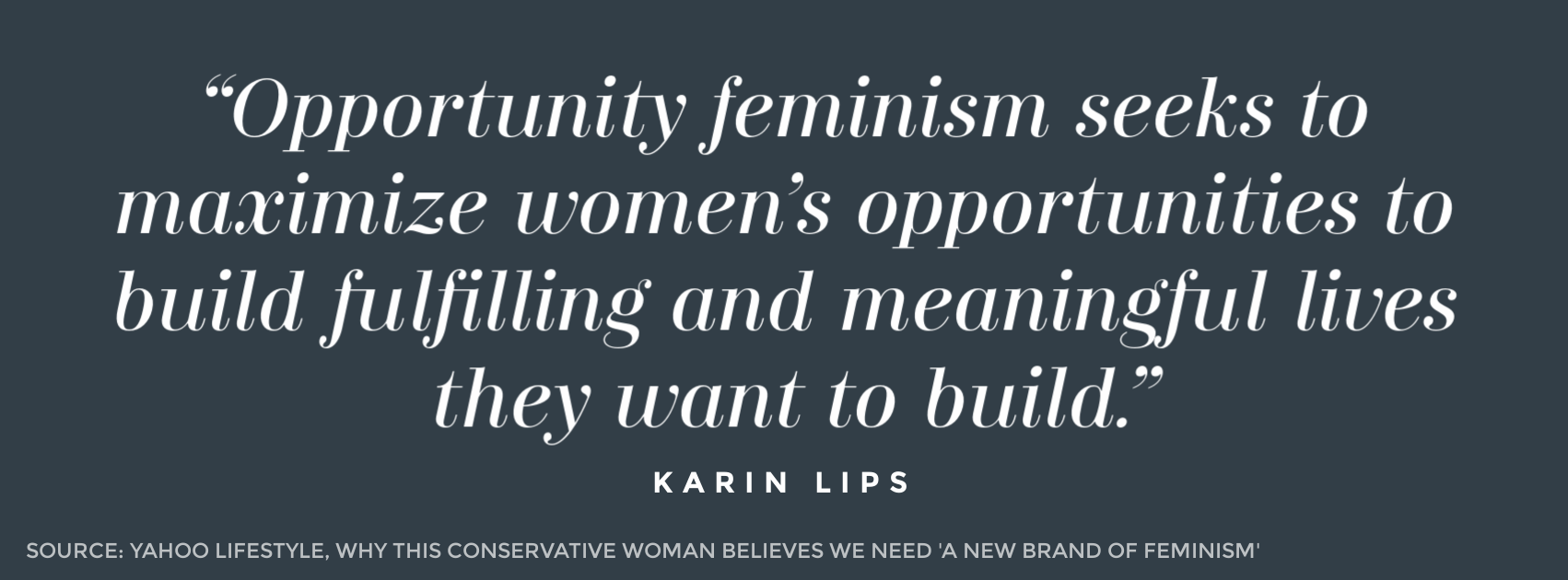Why Women Shouldn’t Try To Make The Future Female
This article originally appeared in Forbes.
Former presidential candidate Hillary Clinton is back with a message for women and all Americans. In her first post-inauguration statement for “the glass ceiling breakers of the future,” she said,
Despite all the challenges we face, I remain convinced that yes, the future is female. Just look at the amazing energy we saw last month as women organized a march that galvanized millions of people all over our country and across the world.
Recorded for AOL’s MAKERS, a platform that tells the stories of women leaders, it is no surprise that she sought to inspire women attending the 2017 MAKERS Conference this week in California.
But there is a difference between telling women that they are equal to men and telling them that they are better than men. She chose the latter.
Instead of an uplifting message for everyone, she pitted women against men with her “the future is female” mantra. Inherent in this message is the notion that it is a zero-sum game between women and men, and we have to choose a future that is either female or male, rather than both. Her clear implication is that there is something wrong with men as men, and that we are somehow better off if men are pushed to the sidelines.
These ideas are becoming increasingly prevalent in popular culture. Take the proliferation of a new set of verbs women use to complain about the way men interact with women—mansplaining (when a man explains something to a woman in a supposedly condescending way), manterrupting (when a man interrupts a woman) and manspreading (when a man spreads his legs when sitting so as to take up more than one seat on public transportation).
And then there are these signals from celebrity icons, such as single actress January Jones who said in an interview that her 5-year-old son doesn’t need a dad around:
It’s good to have strong women around a man. To teach him [her son] to respect women. He doesn’t have a male person in his life saying ‘don’t cry’ or ‘you throw like a girl’. All those shitty things dads accidentally do.
Actress Lena Dunham tweeted out an animation in November asking, “How are you feeling about the extinction of white men?”
On campus, this anti-male attitude is apparent in the emergence of new programs designed to address “toxic masculinity.”
The Duke Women’s Center launched this school year the Duke Men’s Project, a nine-week program to “create a space of brotherhood fellowship dedicated to interrogating male privilege and patriarchy.” One member of the leadership team said, “[The goal of the initiative is to] critique and analyze their own masculinity and toxic masculinities to then create healthier ones.”
Of course, it is intellectually interesting to consider society’s expectations for men and how those have changed over time. Yet that doesn’t seem to be what is going on here. The message is that the traditional traits associated with men are bad and need to be suppressed. Such a message applied to women would be recognized as prejudice and discrimination at its worst. Why should this anti-male narrative be considered ok?
For women to succeed, women don’t have to stamp out men or see men as the enemy. For most women, much happiness is tied up in having great relationships with men—fathers, husbands, brothers, sons, friends and colleagues.
Recognizing that society will benefit if we encourage both the best in women and men, the Network of enlightened Women (known as NeW), the organization I founded, launched The Gentlemen Showcase in 2010, an annual national contest to honor young gentlemen. Young men compete in two categories, the College Contest and the Under 30 Contest. Nominations are open throughout the month of February and national online voting begins March 1.
In the nomination form for Andrew Sund, the winner of the 2016 College Contest, his nominator wrote, “He always has a smile on his face. He makes everyone around him feel important. Andrew lives his life to serve others.”
The Gentlemen Showcase is a positive program to promote better relations between young men and women. Praising the men who treat everyone with the respect they deserve might just lead to more gentlemen.
Secretary Clinton, the future shouldn’t be female or male—but one of women and men working together. That’s the real definition of equality.



